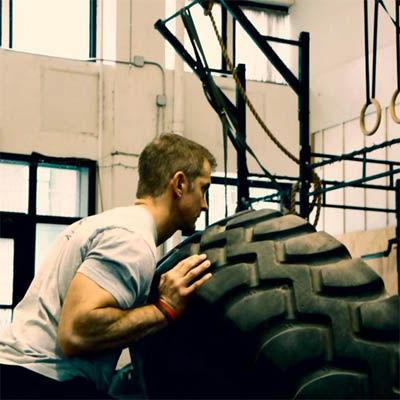I'm a licensed Aircraft Mechanic & Inspector with twenty five-plus years in the field. I've had a varied career so far, with time spent in the sheetmetal, mechanic, and inspection specialties. Most of my time is on heavy Boeing and McDonnell Douglas aircraft, of the passenger, cargo, and experimental type. This career isn't for everyone, but I enjoy it.
Please do NOT ask me to troubleshoot problems with your airplane, that is not what this Q&A is for.
I can only answer this accurately from my own perspective. When we were in school, when I was earning my license more than twenty years ago; it was drilled into us, that every aspect of what we do can effect the safety of the aircraft. Even seemingly minor 'annoyance' problems, such as a stuck switch, or a loose knob, can cause a distraction for the pilot, leading him/her to focus on something stupid, when attention should be focused on more important things. Aircraft have crashed for just such reasons in the past, it's a human factors distraction thing. Often hundreds of lives are at stake based on the safety of an aircraft. And, while the average mechanic will think of this sometimes, I find that the primary focus in real practice is simply getting the given task at hand done properly. Which tends to take care of the whole safety aspect automatically. As far as myself worrying about hundreds of people, I find that either too big a thing, or too far removed (as I won't personally know most of them). When I think of it at all, I tend to think about the flight crews, or the ride along mechanic, that will be on the plane. Those people I tend to know personally, which puts the safety aspect on a much more personal level. And here again, when I address this smaller group, the rest are taken care of.
I have noticed that work is extra scrutinized by the FAA, if you are working at the particular airline that actually experienced the accident. If you are working at a different company, that operates similar equipment or in similar conditions; the company itself will look closer at things, so as to prevent such a thing from happening to them and their aircraft. If it is a big issue, the FAA will issue an Advisory Directive (AD) that directly addresses the cause of a given accident soon after the cause is known. This will put the aircraft in question, as well as the personnel performing the tasks, under an extra level of scrutiny.
Yes, once. We were launching a Boeing 747, and the crew was all on board, engines started. We unplugged our headset after wishing them a good flight, and were driving away in the truck. I heard the air motors for the leading edge flaps go off as they were extended, and it made me turn my head to watch. It was then that I saw that one of the sections of extended leading edge, between the number three and four engine, had not extended properly. One of the two arm mechanisms on that section had seized up halfway out, and as a result, the section was full out on half of it, and only half on the other, with the structure all twisted and broken in between. The plane had already started taxiing, and we had to radio them to stop, because something was broken. If it had been missed, and the aircraft had taken off, it could have caused a problem. Parts could have been ripped off in flight, damaging the aircraft further, or even causing sections of leading edge flap to jam in the 'out' position; creating a dangerous asymetrical flight characteristic. That was the only time I caught something right before flight.
In general, the larger the place you work, the more specialized the people and teams tend to get. Avionics people doing the electronic stuff, sheetmetal doing all the sheetmetal work, mechanics doing all the mechanical stuff, etc. If you work for a smaller place, or are out on your own at a remote outstation, or as a ride on mechanic; it is possible that you would have to do whatever task pops up. As an AOG/Ride on mechanic in the past, I’ve had to do a tire change, troubleshoot a fuel quantity problem, and perform a small sheetmetal repair; all in the same day, same plane, by myself. This would tend to be more common on smaller aircraft as well, as they tend to be privately owned, or operated by smaller organizations. Some mechanics do work only in specialties. Sometimes a mechanic will only have the Airframe portion of his/her A&P license, and they can only officially work on structures and associated systems. Same for someone with only a Powerplant license; they can only work on engines and their systems (typically defined as anything on the engine side of the firewall). There are also people who never work anything except Avionics, seats, painting and such. The typical person with an A&P (Airframe & Powerplant) license, is expected to be more of a ‘jack of all trades’ when it comes to aircraft. And mechanics that can actually perform as such, are valuable to have around.
MBA Student
 Is business school a party compared to law or med school?
Is business school a party compared to law or med school?
Professional Reseller
 What was your most valuable find in a thrift store?
What was your most valuable find in a thrift store?
CrossFit Coach
 Are Crossfit gyms profitable right out of the gate?
Are Crossfit gyms profitable right out of the gate?
There are a couple different facets to that question actually. To simply work on an airplane, you need no credentials. Just good mechanical ability, and a clever mind. The caveat being that you must work under the direct supervision of a licensed aircraft mechanic. Reasoning that the licensed mechanic will be teaching you how to go about aircraft maintenence the proper way, much like an apprenticeship. Also, you cannot sign for your work as an unlicensed mechanic. And if it isn't in the paperwork or logbook, and signed for by an authorized individual, then the job isn't complete, or legal. Everything that is done to an aircraft must be documented. I have to stress that: EVERYTHING. If you replace one screw, that should be documented. With a proper installation reference from the approved maintenance manual, and signed for by a licensed mechanic. In my case; I chose to go to school to get my license. The schooling was at Lansing Community College's Aviation School, and it was treated like a part time job for all purposes. We had to punch a time clock, to document our hours (a certain number are required to be eligible for a license). And we went year round, for two years, five hours a weekday. At the end of that, I had my Airframe & Powerplant licenses. Which is called a "license to learn" around the school. And it's technically true. Because, by the FAA regs, even a licensed mechanic cannot perform any given maintenance task, until it is done under the supervision of another more experienced mechanic. I should mention, that if you were to choose to go the 'mechanic apprentice' route; that it's a 30 month path of documented On The Job training that is required. After which, you would be eligible to take the tests for both your Airframe & Powerplant license. I have tried to reason out why I chose this profession before. I never came up with a solid answer I'm sorry to say. I think it is a combination of things really. I had always been mechanical, working on my own cars and such. Airplanes are cool, obviously. And I had always thought so, attending local airshows when I could. Timing: I walked into the registrars office at the college to sign up for this career path, at a time when I had little direction in life. I had no idea what I wanted to do, and this seemed like the most appealing thing on the class listings. The following two years of courses would have weeded me out if I hadn't really enjoyed it I think.
Now, I won’t cheat and try to find out before I answer, though I may afterwards. I am not aware of any law or regulation that commands a flight crew to be 100% honest about flight delays with their passengers. It may be an airline policy, or just that particular crew being honest. It shouldn’t upset you, other than the fact that you are delayed. There will be no "baling wire and duct tape" repairs going on just to get you out of the gate; trust me. Either it will get fixed right in a certain time period while you sit there, or they will deplane you and make other plans. Really it’s a common thing to have last minute problems. Usually they are not flight critical and can be deferred, such as a light burned out, or a climate control not keeping the inside temp right. Other things, like a tire or brake change, or a scheduled maintenance that just ended up taking a few extra minutes, is all that it is. You know how it can be; the second you tell someone that a certain simple job will take a half hour to do, that’s when Murphy’s Law kicks in and makes something a little harder. All in all, I’d rather the airline was honest with me about such things. That way you know you can trust them about other things, which may be more important for you to know. :)
I am flattered, but I am far from an aeronautics expert. I know enough theory to know how much about it I don’t know. A properly designed wing, will generate lift by having a high pressure on the bottom, and a lower pressure on the top. So, though I know the basic theory, it does surprise me when I see how much weight can haul itself up into the air on one of our Boeing 747’s. Fully loaded with cargo and fuel, their max takeoff weight is over 800,000 pounds. Yeah, it does blow me away sometimes.
-OR-
 Login with Facebook
Login with Facebook (max 20 characters - letters, numbers, and underscores only. Note that your username is private, and you have the option to choose an alias when asking questions or hosting a Q&A.)
(A valid e-mail address is required. Your e-mail will not be shared with anyone.)
(min 5 characters)
By checking this box, you acknowledge that you have read and agree to Jobstr.com’s Terms and Privacy Policy.
-OR-
 Register with Facebook
Register with Facebook(Don't worry: you'll be able to choose an alias when asking questions or hosting a Q&A.)